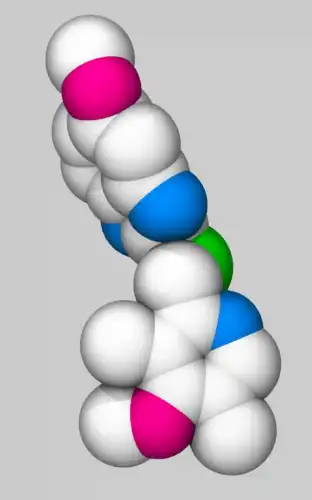Celiac.com 03/13/2025 - Proton pump inhibitors, commonly prescribed to reduce stomach acid, have become a staple treatment for conditions such as gastroesophageal reflux disease, peptic ulcers, and dyspepsia. However, the long-term effects of these medications are still being investigated, particularly in relation to their impact on the gut microbiome and immune response. A growing body of research suggests that prolonged use of proton pump inhibitors may contribute to the development of celiac disease, especially in individuals with a genetic predisposition. This review examines the relationship between proton pump inhibitor use and celiac disease, highlighting the need for further research into how these medications may influence disease progression.
Understanding Proton Pump Inhibitors and Their Effects
Proton pump inhibitors work by blocking the production of stomach acid, providing relief from acid-related digestive conditions. Since their introduction in the late 1980s, they have been widely used to manage esophageal and gastric disorders. While these medications are effective, they also alter the gut environment by reducing acid levels, which can impact the balance of bacteria in the digestive system. Changes in the gut microbiome have been linked to various gastrointestinal conditions, including celiac disease.
Genetic Risk Factors for Celiac Disease
Celiac.com Sponsor (A12):
Celiac disease is an autoimmune disorder triggered by the ingestion of gluten, leading to damage in the small intestine. The disease primarily affects individuals who carry specific genetic markers known as HLA-DQ2 and HLA-DQ8. While these genetic factors are necessary for developing celiac disease, they are not the sole cause. Environmental factors, including diet, infections, and medication use, may contribute to triggering the disease in genetically predisposed individuals.
How Proton Pump Inhibitors May Contribute to Celiac Disease Development
Recent studies have explored how proton pump inhibitors may play a role in initiating or accelerating celiac disease in those with genetic susceptibility. Because proton pump inhibitors significantly alter the stomach environment, they can disrupt the normal breakdown of proteins, including gluten. This could lead to an increased exposure of gluten peptides to the immune system, potentially triggering an inflammatory response in individuals with HLA-DQ2 or HLA-DQ8 genes. Additionally, proton pump inhibitors have been shown to affect gut bacteria, which are thought to play a role in immune regulation and intestinal health. Disruptions in the gut microbiome could further contribute to the inflammatory processes associated with celiac disease.
The Need for Personalized Medicine and Further Research
Although proton pump inhibitors are effective in managing acid-related disorders, their potential impact on celiac disease risk raises important questions about their long-term use. Individuals with genetic susceptibility to celiac disease may need to carefully evaluate the risks and benefits of prolonged proton pump inhibitor therapy. More research is needed to determine whether alternative treatments or modified use of these medications could reduce the risk of developing celiac disease.
Conclusion
The link between long-term proton pump inhibitor use and celiac disease is an emerging area of research that highlights the complex interplay between genetics, medication use, and gut health. For individuals with HLA-DQ2 or HLA-DQ8 genetic markers, extended use of these medications may pose a risk by altering the gut environment in ways that could contribute to the onset of celiac disease. This study underscores the importance of personalized medicine and the need for further investigation into safer treatment options for managing acid-related disorders without increasing the risk of autoimmune conditions like celiac disease.
Read more at: journals.lww.com









Recommended Comments
There are no comments to display.
Create an account or sign in to comment
You need to be a member in order to leave a comment
Create an account
Sign up for a new account in our community. It's easy!
Register a new accountSign in
Already have an account? Sign in here.
Sign In Now